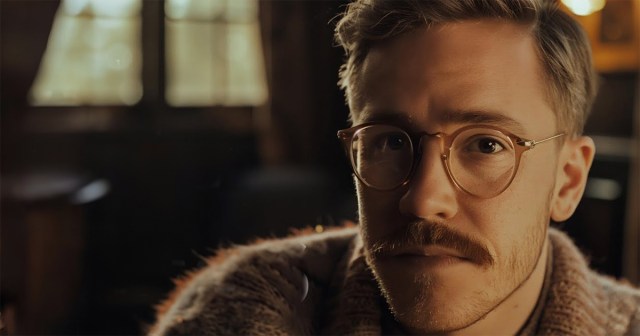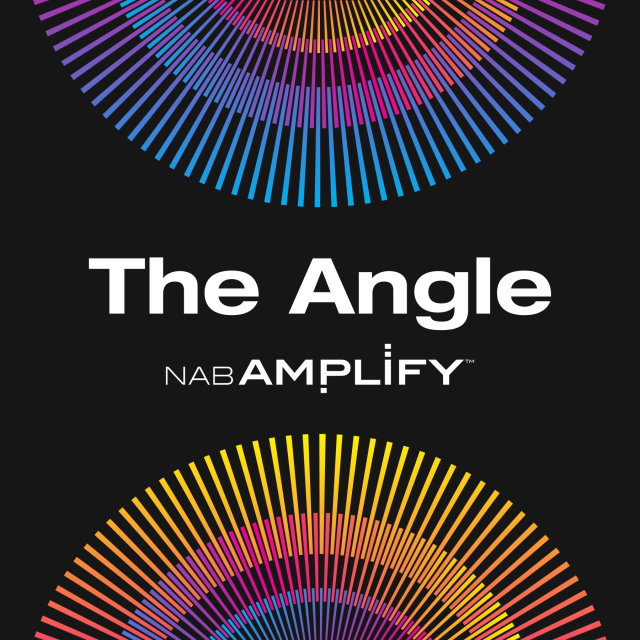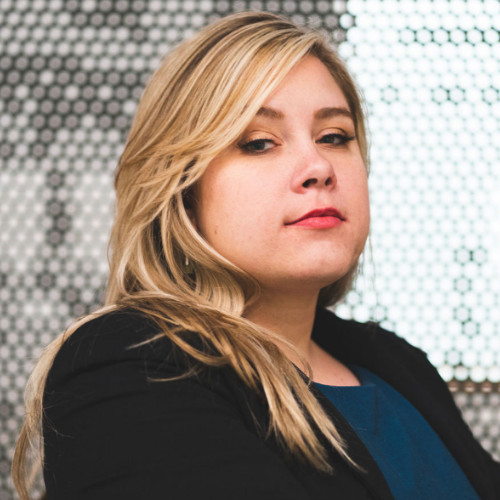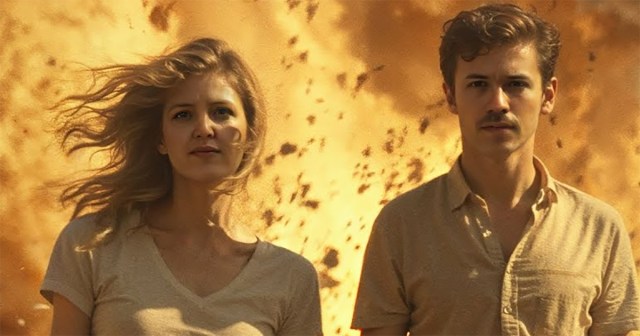
TL;DR
- Curious Refuge CEO Caleb Ward is a strong believer in generative AI’s potential to democratize creativity. He and his wife/COO Shelby founded the platform to offer education and community to AI storytellers and aspiring AI storytellers.
- Read the first part of Ward’s interview online here, or watch the full conversation, below.
- The Wards are scheduled to speak at NAB Show on Sunday (Lights, Camera, Studio! The Insider’s Guide to Building Your In-House Facility) and Wednesday (The Economics of AI for Creators and Filmmakers). Register online here using code AMP05 to attend for free and learn more.
In addition to creating educational curricula for AI users, Curious Refuge offers a weekly newsletter and web series, hosted by CEO Caleb Ward, to help followers keep up with the latest and most important developments in this space. It’s interesting to hear his thoughts on some of the biggest conversations about generative AI.
First, it should surprise no one that Ward isn’t overly worried about AI taking over Hollywood.
“I don’t think it’s a zero sum game,” Ward says. “I think that we’re going to see completely new AI assisted stories, and I think we’re going to have the Hollywood stories be elevated in quality because of the use of artificial intelligence.”
However, at Curious Refuge, “We believe that that transition time can be, you know, challenging,” Ward says, even while people embrace new tools and opportunities.
It’s true that “storytellers and creative people now have creative potential and the ability to tell more stories, bigger stories, and really, to take the power away from just studios commissioning you.”
For Ward, “It’s been really interesting to think about how these tools can transform each aspect of the pipeline.”
Ethics and Industry Impacts
But he acknowledges that “it’s very important for people to be having conversations about the impacts of AI tools” on the industries and workers who they’re targeted to.
In addition to recognizing the law of unintended consequences, Ward says, “It is very important to use these tools in an ethical way.”
He says, “We have a digital language in the ethics of using tools like Photoshop right now. And that’s because we’ve had a lot of experience to know the pros and the cons and to know what as a society and what as legislation and laws have popped up, as it relates to using those tools. We’ll see the same thing pop up with AI.”
While the dust may not have settled yet, Ward says, “We think you need to start with ethics before you begin creating. And you need to find out where you personally live as it relates to using these tools. Some people — they won’t even use tools like ChatGPT because of the ethical concerns that they have. And I totally understand their perspective on that. But I think it’s really important for everyone to arrive at what that means for them.”
Ward knows that his lines won’t be the same others draw. But he isn’t starting from scratch when drafting the Curious Refuge framework. “We use some visual, I guess, ethical cues from society, some cues that we see in other places, as kind of a litmus test for how we approach our AI tools.”
For example, they’ve released some parody trailers and looked to SNL for guidance as to how to ethically play in this space of representing actors and IP.
And on the flip side, Ward says, “As it relates to my work being ingested by an AI and someone being able to, you know, spit out [AI-generated] work that seems like my work, I’m fully expecting that to happen. And it did happen” when the Wes Anderson-esque video went viral.
His feeling was “Oh, that’s cool. I got to inspire somebody to create on their own.”
After all, “It’s always a back and forth with AI… You have to treat it like a creative assistant. It’s not a creative replacement. It doesn’t have taste,” Ward notes.
However, Ward says, “I know that there are a lot of IP holders in Hollywood that don’t share that same vision of a future in which storytelling is collaborative, and not just owned by certain entities. But I think that for me personally…that’s how I’m viewing AI for myself.”
Setting up the Guardrails
In addition to personal responsibility, Ward is adamant that AI toolmakers need to do their best to get it right and to understand how their actions are likely to impact the marketplace.
“I think really, the responsibility needs to go to these companies,” Ward says. “And they need to be mandated to do their ethical research around how they release these tools.”
He believes this should be formalized, as well. “These tool companies need to have ethics teams that are thinking about the bad ways in which people can use their tools and the negative impacts that it could have on society. But even then, they’re not going to get it right.
“Google released their image generator and totally botched it. Google has a huge ethics team, they really think about their steps before they take them. If they can’t get it right, I don’t really see a scenario where the companies are going to get it right before they release.”
But that doesn’t excuse them from making an effort. And some companies certainly are.
Ward points out that OpenAI likely has a Sora-equivalent AI video generator waiting in the wings. He explains, “They probably have the ability to release that right now. But they’re intentionally not doing that because they want to think about the long term impacts and how they can roll it out in a way that supports people.”
For those keeping an eye on AI regulations, Ward says, “I do not think that it is even reasonable to think that legislators would have any idea as to what is happening. I think they need to be talking with creators and with the people developing these tools, and they need to be informed in the process. I do like that we have some legislation and mandates that are requiring pitfalls and red flags to be talked about and addressed before tools are released. I think that’s very, very important.”
Nonetheless, he says, “I think there are some proactive things you can do, like the EU’s recent laws related to AI. But the government is really in a Catch-22 because if you start pumping the brakes on the development of AI tools, other countries that are less inclined to slow down the development are going to take over, and we know that a week in AI is like a year in previous industries. And so the economic cost that it could play out to your society could be just super detrimental.”
Recalling the infamous original red flag legislation, Ward says, “You don’t want to end up like the car manufacturing industry in the UK. But you also don’t want AI tools to just come through and decimate existing industries and change the way that we do things.”
How Hollywood Is Handling All This
Utilizing generative Ward says, involves “a restructuring of the way in which you understand the process of storytelling, but ultimately, I think it’s going to result in bigger stories, more stories, more diverse stories, and I think that is a good thing. But there are going to be growing pains.”
Specifically for the Hollywood studios, the obstacles are primarily “legal challenges and copyright challenges. So if a studio creates a film, using artificial intelligence, most studios are under the impression with the legal precedent that’s been set up to this point that they don’t actually own that film.”
However, Ward says, “I really don’t think the precedent is really going to continue for you to not truly own content that’s created with the assistance of artificial intelligence.” He notes that ruling was related to the creation of a wholly AI-generated image library, rather than utilizing AI tools and the back-and-forth creative prompting process.
Currently, Ward points out, all of the big studios have R&D teams dedicated to learning how to use AI, but the majority of the creative teams are banned from using it, with the exception of the studios that have created custom models. (“They’re not great at this point,” Ward says.”)
He thinks, “The industry is going to have to answer those questions, and there’s gonna have to be legal precedents that make them feel more comfortable — or studios, just probably a smaller studio is going to be brave and release their own thing, and it’s going to be a big commercial success. And the big studios are going to be like, ‘OK, here we go!’”
In the interim, Ward says, “Studios in the larger industry do themselves a disservice by not exploring these tools.”
And once studios decide to dive in, new challenges will have to be tackled.
As we all know, “Workflows with AI, they change very frequently. And the quality of the AI generations is really improving day after day,” Ward says. “So how do you build a pipeline whenever you have these innovations popping up like this? And the answer, usually, in Hollywood, is you lock in your tech.”
But will that be feasible or even practical with genAI tools? Unclear.
“I think there’s huge opportunities for those that embrace it,” Ward says. “But if you’re sitting back and you’re just too scared to touch it, or you know that that paradigm shift causes paralysis, then I would say, really think about these tools and just go into it with a little bit of an open mind to seek out what creative opportunities there might be there for you.”

Why subscribe to The Angle?
Exclusive Insights: Get editorial roundups of the cutting-edge content that matters most.
Behind-the-Scenes Access: Peek behind the curtain with in-depth Q&As featuring industry experts and thought leaders.
Unparalleled Access: NAB Amplify is your digital hub for technology, trends, and insights unavailable anywhere else.
Join a community of professionals who are as passionate about the future of film, television, and digital storytelling as you are. Subscribe to The Angle today!


